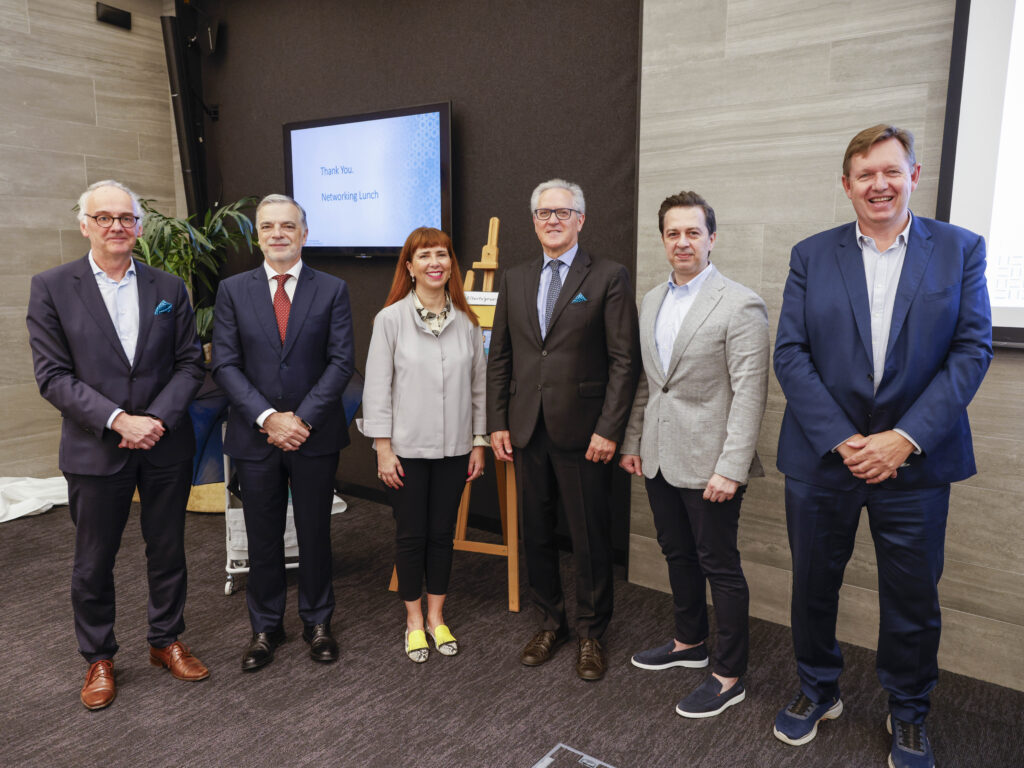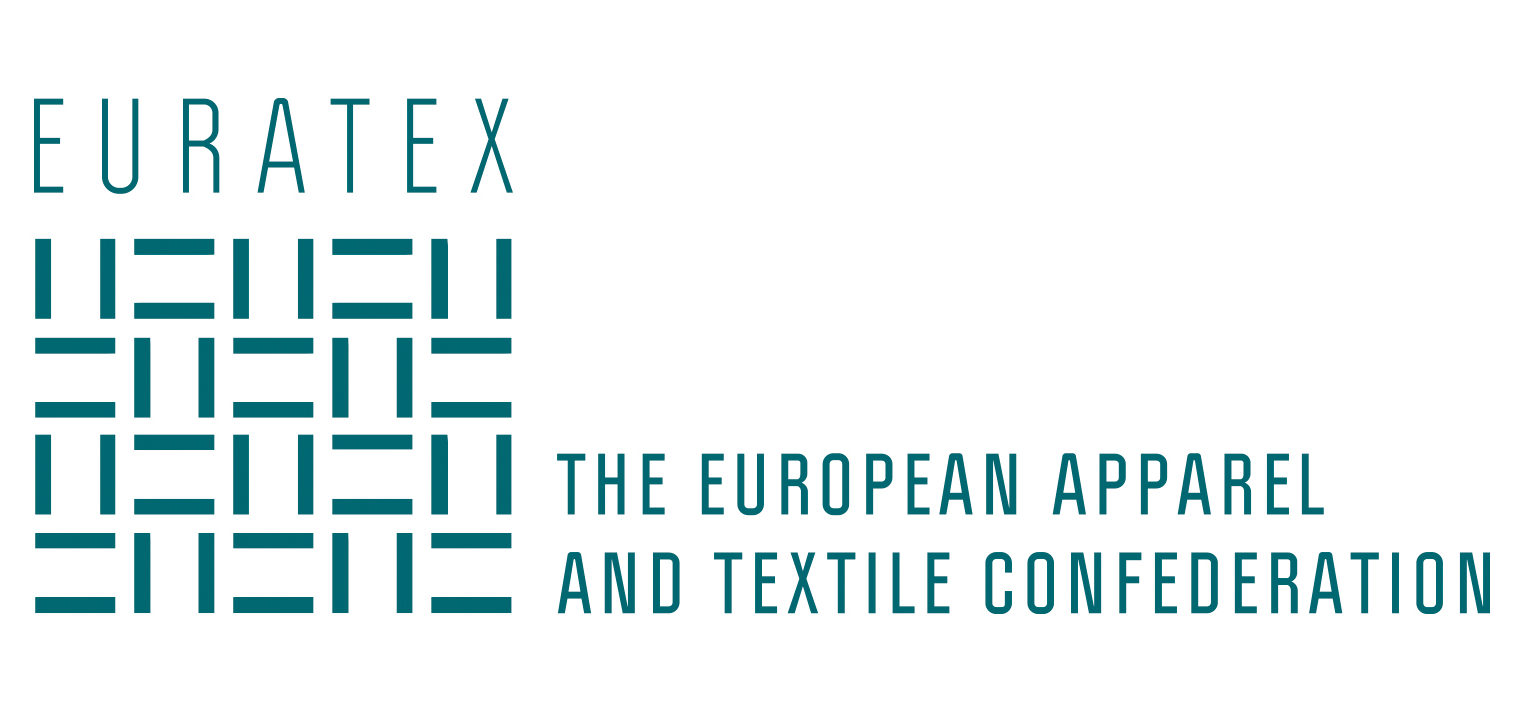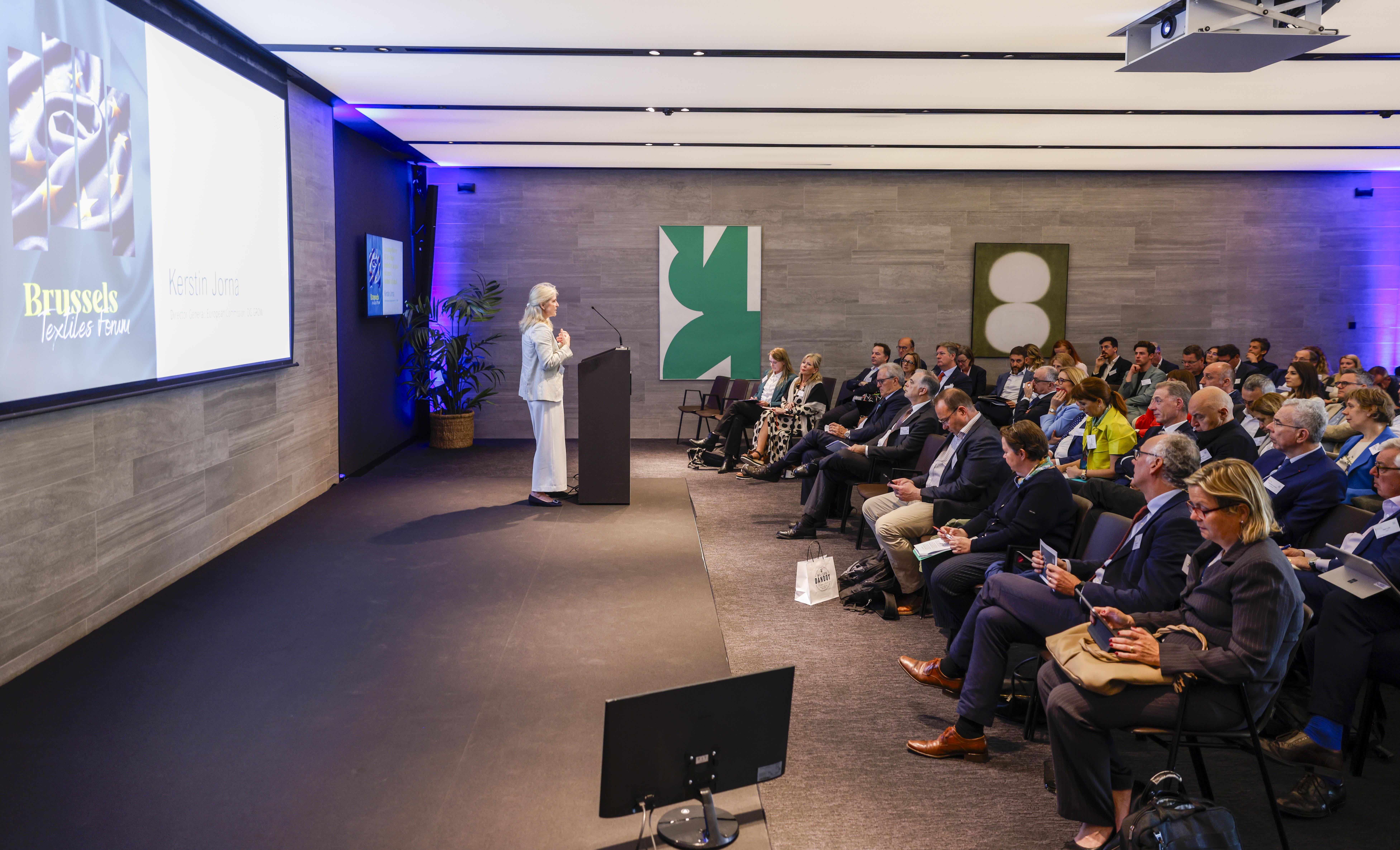
Brussels, 21 June 2024 – Last week, EURATEX hosted different events for its members, stakeholders and network.
We started on 12 June with the convention for a sustainable future for the European textile industry, organised together with economiesuisse and Swiss Textiles in the beautiful Chateau de la Hulpe. The convention focused on the impact of EU legislations on non-EU countries and in particular Switzerland. Three start-ups – dimpora®, Maison Forton or i care. Iceep – presented their companies and work.
Some interesting insights from that day:
- Switzerland is no. 1 export market of the EU for textiles & clothing.
- Switzerland relies on a stable and predictable framework. It needs the Bilaterals III.
- The EU textile strategy is a game changer for our sector. But Switzerland and the EU need mutual recognition to avoid destroying value chains and to avoid creating new barriers.
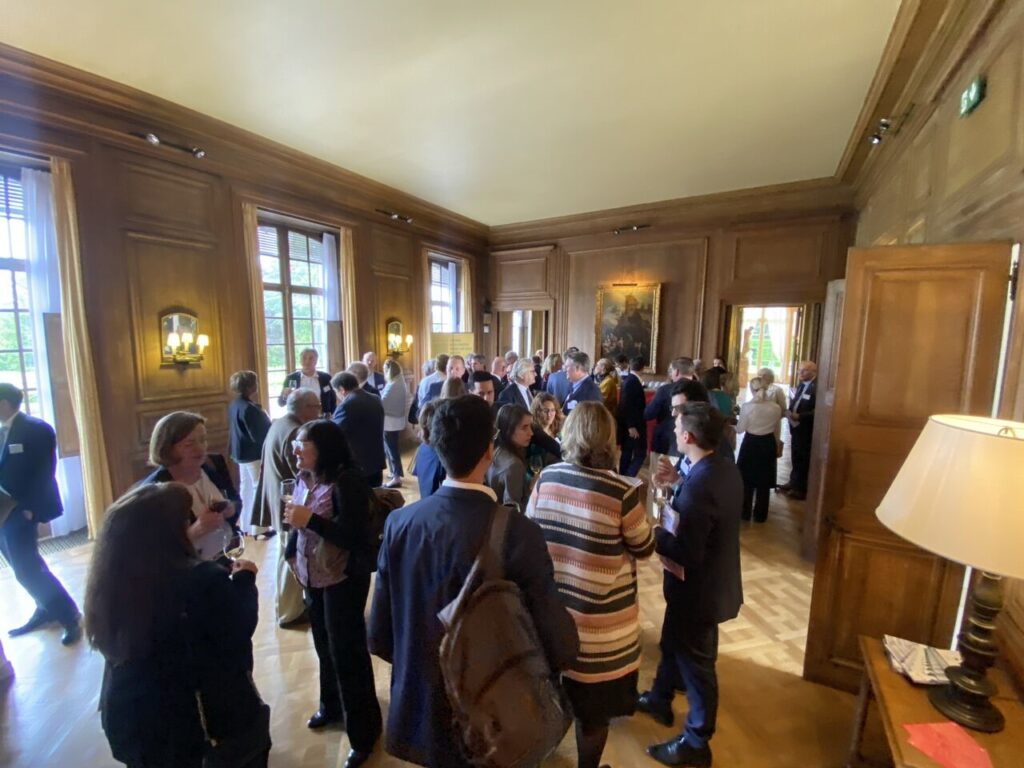

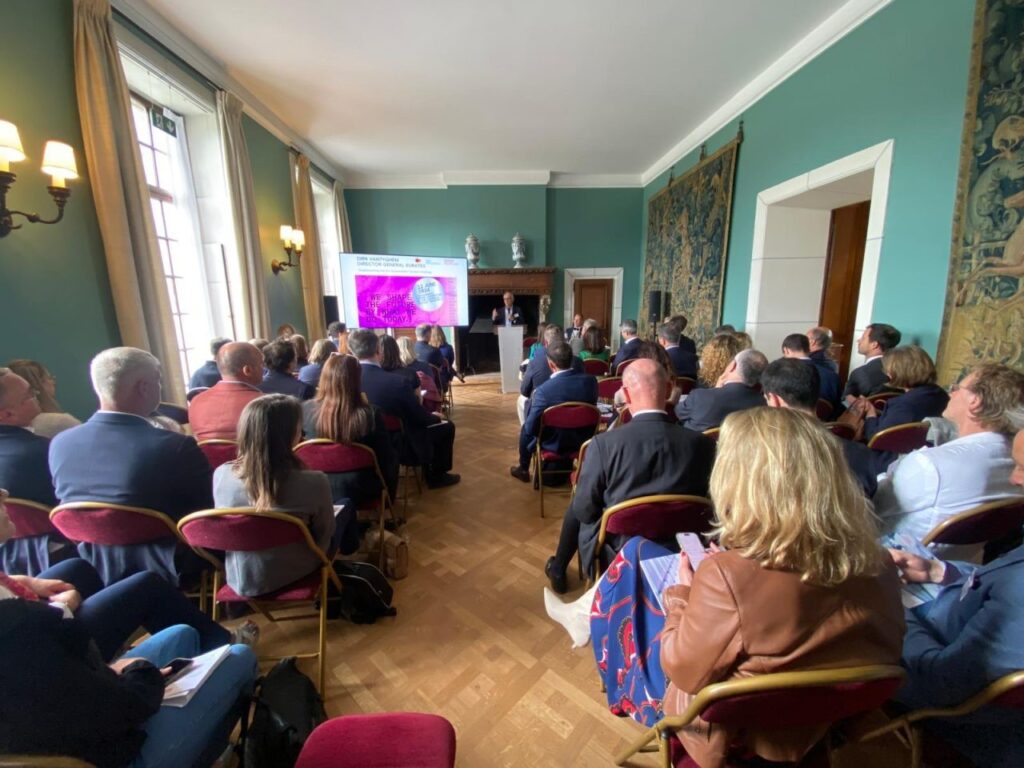
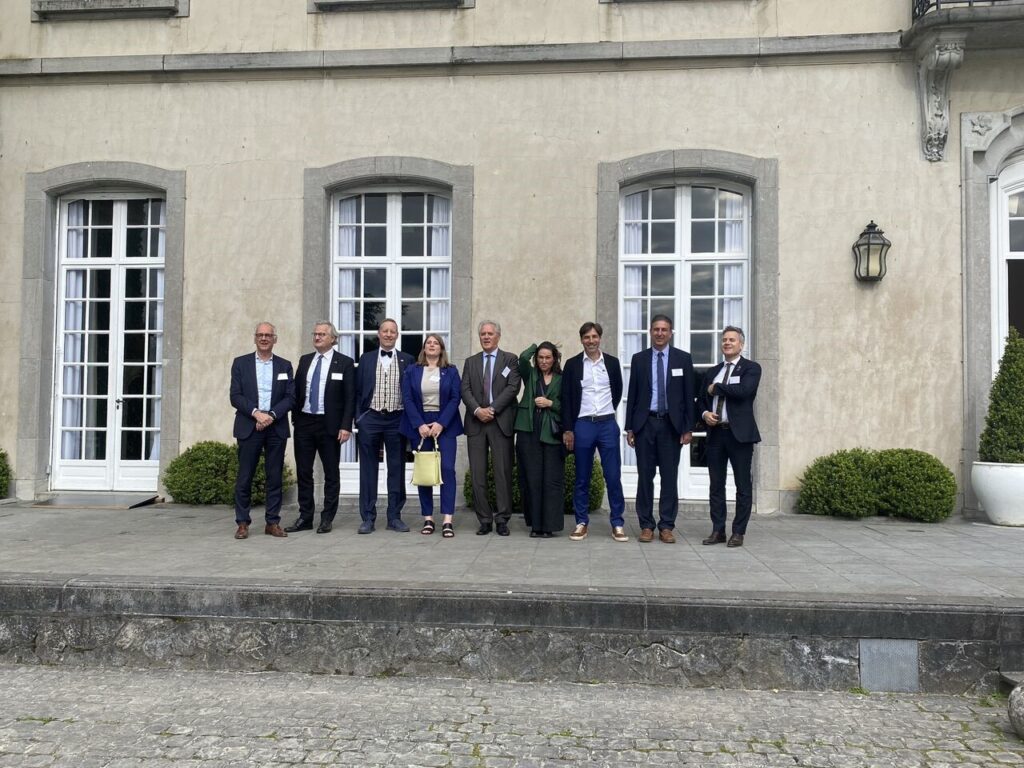
On 13 June, around 130 CEO, industry representatives and EU officials met in De Warande, Brussels, for the first edition of the Brussels Textiles Forum.
What is going to happen in the next five years? Which policies will be at the centre of the next institutional cycle? What can be done to support European SMEs and lower the legislative burden? These were some of the questions that EU top officials and journalists answered during EURATEX Brussels Textiles Forum.
In the morning we got insights from Andy Bounds (FT correspondent) , Kerstin Jorna (Director General, GROW, European Commission) and Elisa Roller (Director, General Secretariat, European Commission) , while in the afternoon CEOs and top EU officials debated sustainability, trade and industrial policy.
Some takeaways from the Forum:
- Green Public Procurement (GPP) is difficult for authorities to evaluate and it may be a reason why it never worked. GPP may be worth 9 billion euro annually and can switch price driven demand towards sustainability driven demand. Eco-design set to make it mandatory but we will have to discuss criteria.
- A level playing field at international level is a vital and urgent necessity for a manufacturing industry like ours. This can be pursued through international agreements, FTAs and trade enforcement instruments. To accelerate this effort, the Commission should make pre-testing in laboratories based in the EU mandatory. This would have immediate effect and would be completely symmetrical.
- Skills are key to make our industry successful. Unfortunately, textiles VET and universities are disappearing in Europe. If our companies want to hire, they need to look for people in Asia.
- We need to take onboard consumers and educate them about sustainability since early age. We cannot change the market only with legislation;
- The situation is that the European fashion and textile industry is under pressure. Companies go bankrupt because competition has intensified, especially from the big online giants from non-European countries. We should guarantee level playing field and increase work on market surveillance.
Thanks to our speakers: Helder Rosendo (Business Director, TMG Textiles), Emmanuelle Maire (Head of Unit European Commission DG ENVI), Denis Redonnet (Deputy Director General and Chief Trade Enforcement Officer, European Commission DG TRADE), Gianluca Tanzi (Chairman and CEO Chargeurs-PCC), Wim Coppens (Vice President Beaulieu International Group) and Amaryllis Verhoeven (Director, European Commission DG GROW).
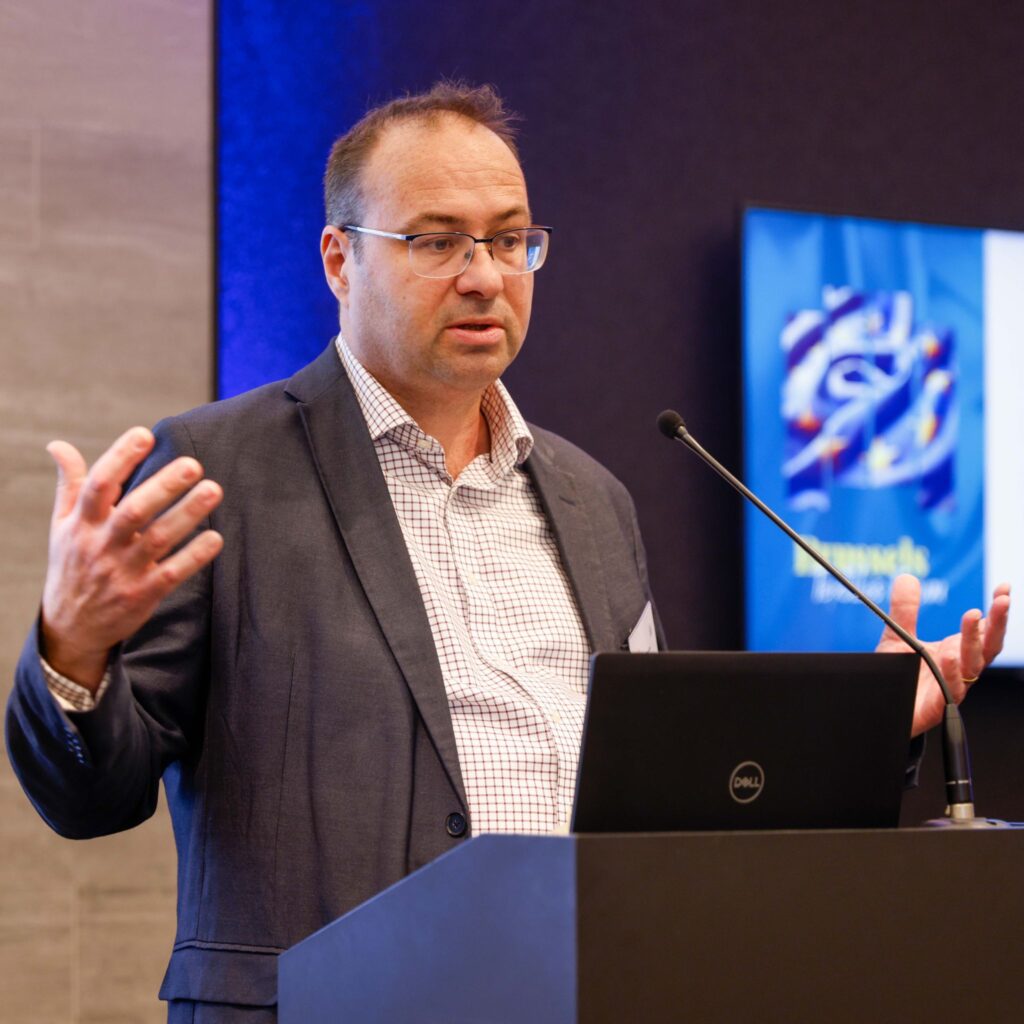
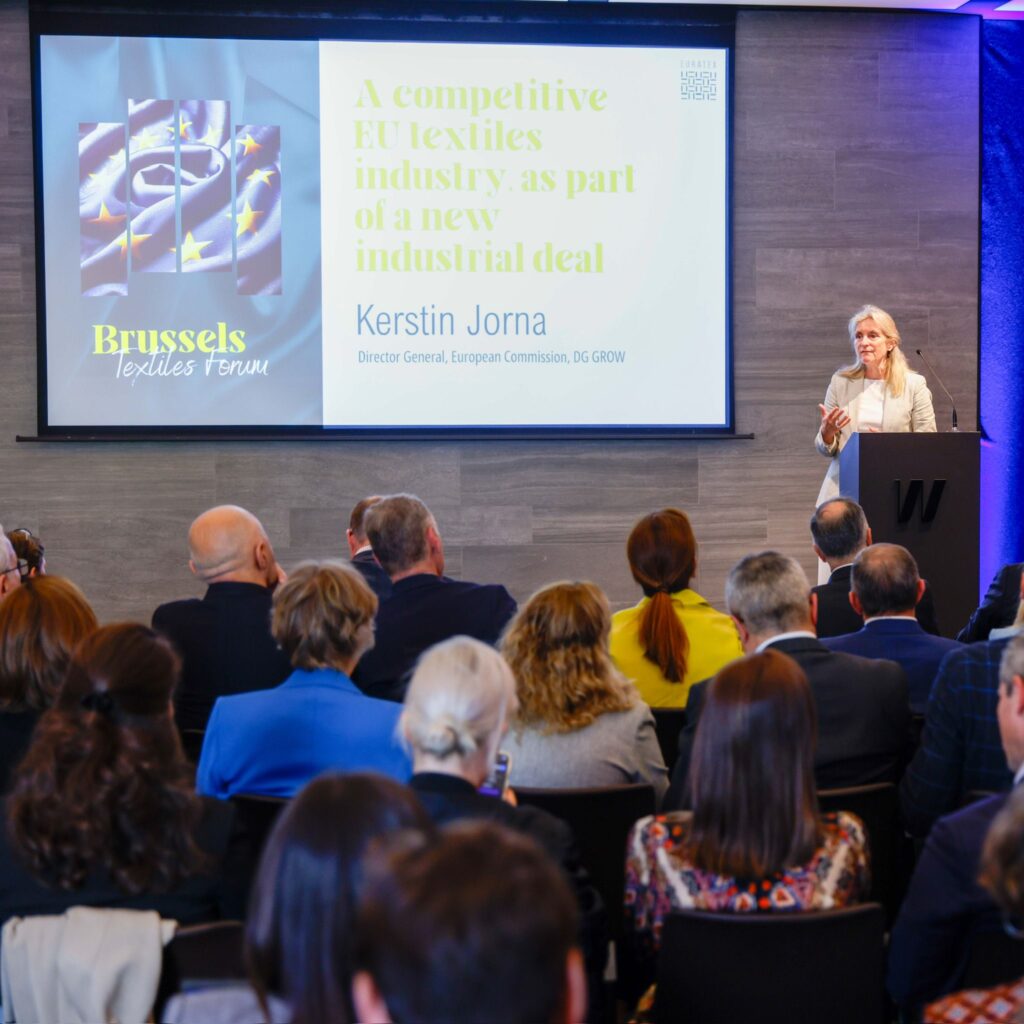

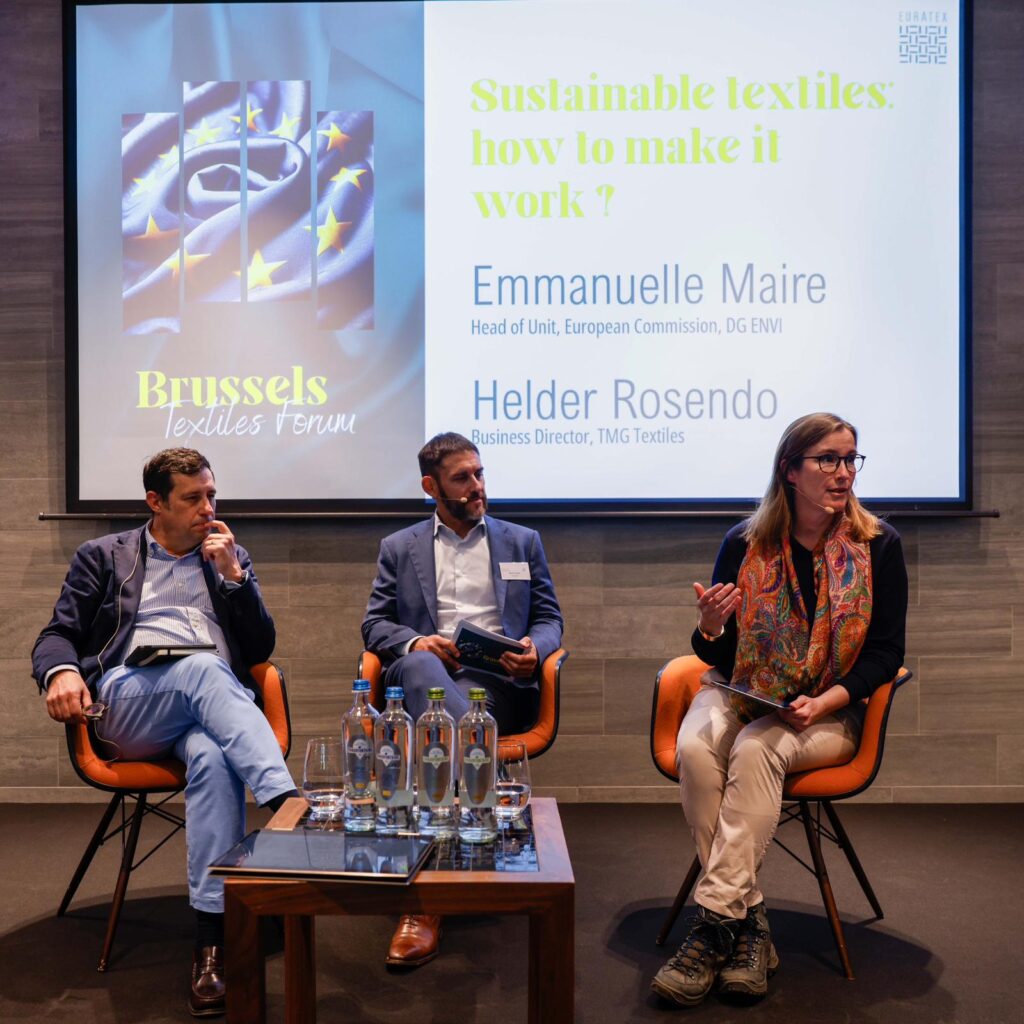
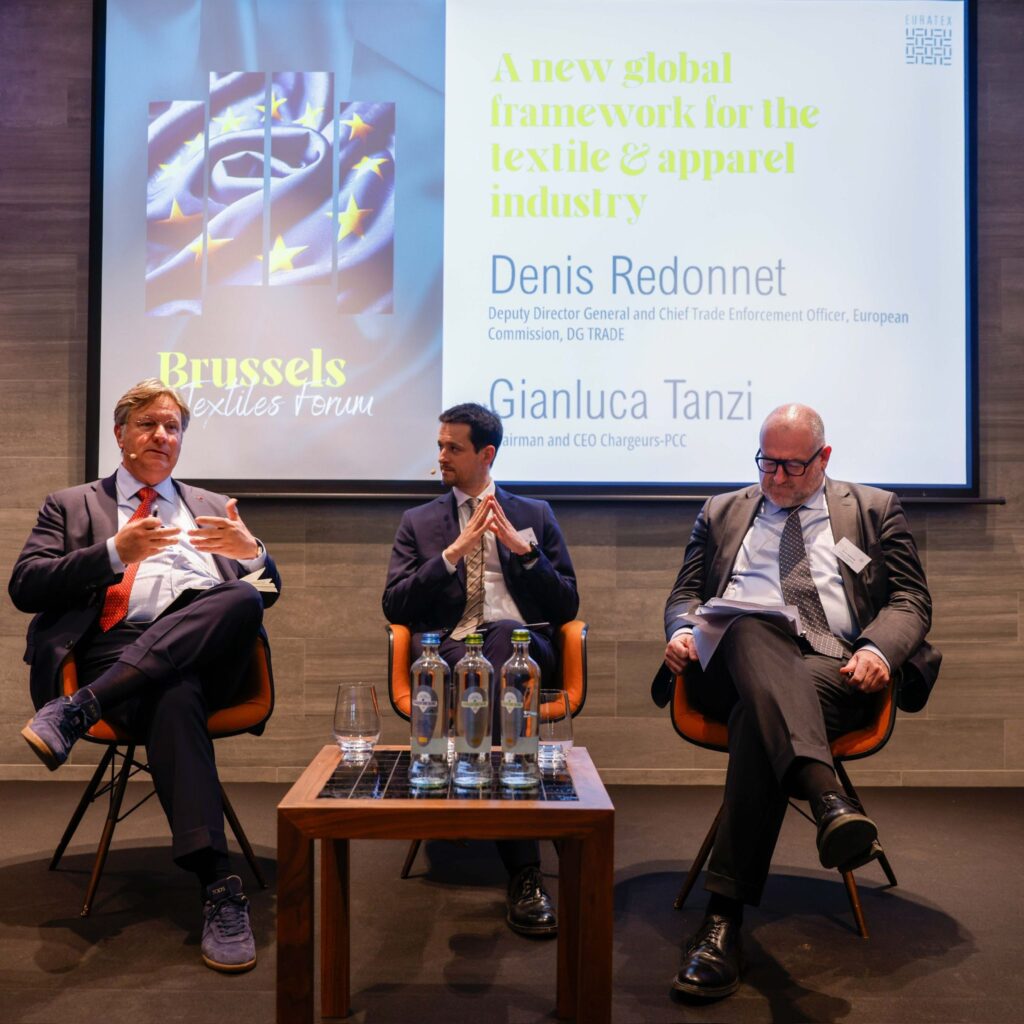

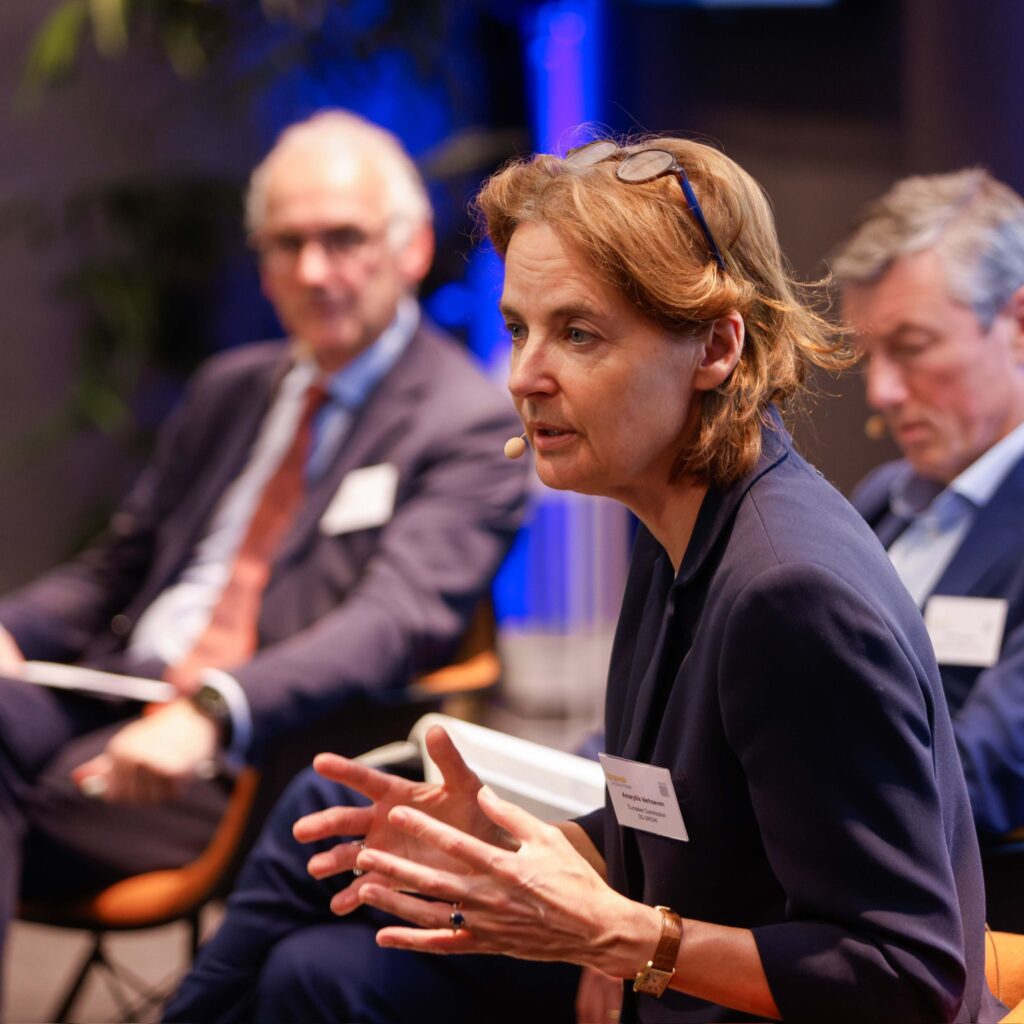
On 14 June we concluded with EURATEX General Assembly. Portuguese textile entrepreneur, Mario Jorge Machado, has been elected President of EURATEX, together with 4 other members of the Presidency Team: Michael Kamm (ZWILLING Gruppe, Germany), Barbara Cimmino (Yamamay, Italy), Gregory MARCHANT (UTT, France) and Ismail KOLUNSAG (Cross Tekstil, Turkey).
The General Assembly also nominated Alberto Paccanelli as Honorary President. EURATEX would like to thank him for the dedication, passion and commitment along the past 13 years.
